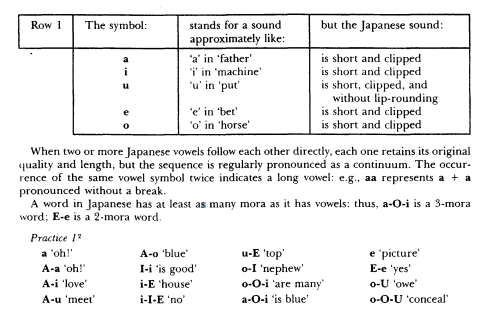Hi, everyone! Back from a long, long hiatus here and I wanted to get your guys opinion on a textbook that I’ve picked up.
I decided as I was picking my studying journey back up that it would be a good time to reflect on what I was missing while doing my regular studies before and the phonetics aspect of Japanese seemed like something I wanted to add into my study routine.
So, I found this textbook called “Japanese - The Spoken Language” by Eleanor Jorden and Mari Noda and I’ve been plucking through the first chapter doing the listening exercises and I like it so far, but I also see some things that would definitely not be to everyone’s fancy.
For example, it seems the whole book uses romaji, which feels mildly counterintuitive to the whole learning to pronounce the symbols thing but whateva. It seems, for an advanced beginner like me, very accessible.
My question for you! Have you heard about/used this textbook in any way and what are your thoughts/what were your experiences with it?

